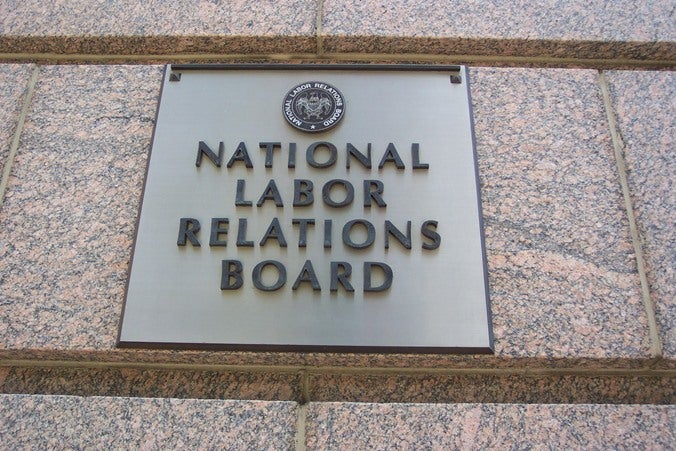Uncategorized
NLRB Rule Change

You may not have noticed, but in December, the Obama administration took away one of the biggest roadblocks to union organizing: Excessive delay tactics by the employer.
The National Labor Relations Board (NLRB) issued a final rule speeding up the election process for workers seeking to form a union. The rule will require employers to postpone litigation on union eligibility issues until after the election itself. The rule will also, for the first time, allow for the electronic filing and transmission of union election petitions.
The Teamsters Union’s experience with the pre-rule election procedures is that they are unfair, confusing and outdated. Further, they are susceptible to abuse by unscrupulous employers seeking to prevent their workers from exercising their right to organize by obstructing and delaying the process.
The proposed changes will streamline the election process, reduce uncertainty and promote fairness.
“Workers for too long have been forced to endure unnecessary delays when they have tried to start a union,” Teamsters General President James P. Hoffa said. “The Teamsters Union is pleased the NLRB moved forward with these changes so hardworking Americans can organize and better provide for their families.”
The deck is stacked against unions today as never before. We all know that delaying elections is a standard union-busting ploy. A 2011 study by the Institute for Social and Economic Research and Policy found that “nearly 50 percent of all serious allegations of union busting tactics—both legal and illegal—by employers happens after workers express initial interest in a union, but before an official petition has even been filed requesting a vote on union representation.”
“I am heartened that the board has chosen to enact amendments that will modernize the representation case process,” NLRB Chairman Mark Gaston Pearce said in a statement. “Simplifying and streamlining the process will result in improvements for all parties. With these changes, the board strives to ensure that its representation process remains a model of fairness and efficiency for all.”
Level Playing Field
Before this rule change, the playing field was dramatically tilted toward union-busting employers. Now, those seeking a voice on the job will have a more streamlined procedure for getting a union. The Teamsters Union has been pushing for this change to union organizing elections for years.
The rule was long in the making. The board proposed a similar change in 2011 but the U.S. Court of Appeals for the D.C. Circuit struck it down, ruling that the board lacked a quorum to issue the rule. The five-member NLRB re-proposed the rule in February. Since the board first started delving into the issue in 2011, more than 75,000 public comments were taken into consideration, including those of the Teamsters Union.
Teamster Support
Hoffa submitted a letter in support of the rule changes when it was first brought up. In it, he wrote:
“Delaying elections has become a routine strategy by employers seeking to buy more time to conduct anti-union campaigns. True enough, employers have the right to express their views about collective bargaining. They do not, however, have to engage in frivolous or pointless litigation pursued solely for the purpose of achieving delay. The current procedures place enormous stress on rank-and-file workers and their managers, inhibiting productivity and souring working relationships. The bad feelings generated by long and protracted election campaigns often extend to a company’s customers. Everyone loses – the company, the workers, the union, and the customers.
“Our organizers have found that employers consistently and aggressively delay elections to discourage workers from forming unions. They take it for granted that workers who want to form a union will have to fight a lawyer or consultant-driven battle involving threats, pressure and costly litigation. In many cases, workers overwhelmingly want to join a union. But employers are skilled at taking advantage of antiquated rules and preventing workers from benefiting from a collective bargaining agreement. They are able to waste the government’s resources with frivolous appeals.
“The Teamsters strongly support the NLRB’s proposed changes to election rules and regulations. These are modest, common-sense changes that preserve due process and strengthen the secret ballot process. They update election methods so they are compatible with today’s technology. And they eliminate the uncertainty that costs so much in time, money and productivity,” Hoffa wrote.
The new NLRB rules will almost certainly be challenged, and since the announcement, the usual chorus of millionaires have whined about how unfair it is for them.
The rule, if it goes into effect, would eliminate existing hurdles that can delay union-organizing votes with meritless and unnecessary litigation. The changes would streamline pre- and post-election procedures to help facilitate agreement and consolidate all election-related appeals into a post-election appeals process. Taken together, they would help stop companies from abusing the legal process to stall election votes, as many do now.